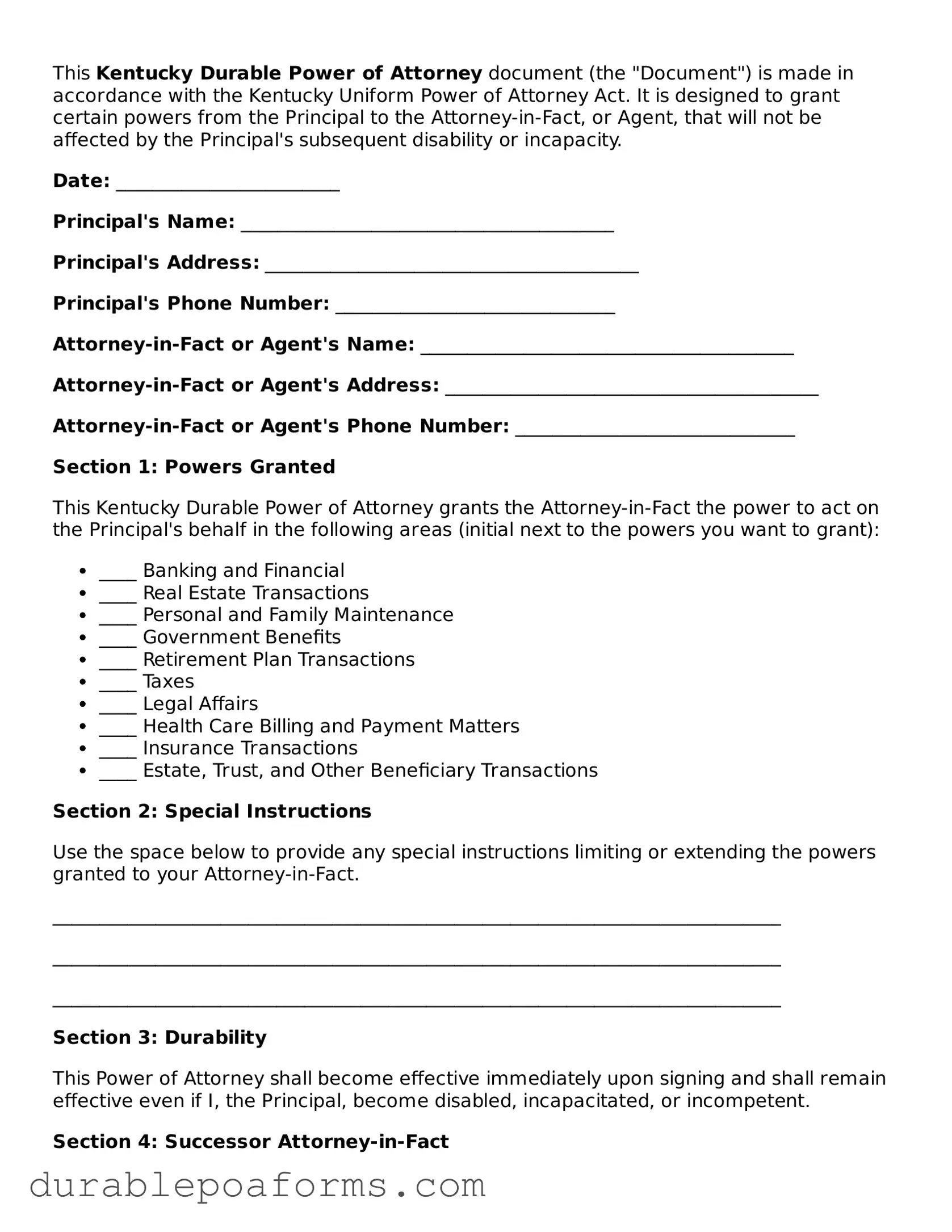This Kentucky Durable Power of Attorney document (the "Document") is made in accordance with the Kentucky Uniform Power of Attorney Act. It is designed to grant certain powers from the Principal to the Attorney-in-Fact, or Agent, that will not be affected by the Principal's subsequent disability or incapacity.
Date: ________________________
Principal's Name: ________________________________________
Principal's Address: ________________________________________
Principal's Phone Number: ______________________________
Attorney-in-Fact or Agent's Name: ________________________________________
Attorney-in-Fact or Agent's Address: ________________________________________
Attorney-in-Fact or Agent's Phone Number: ______________________________
Section 1: Powers Granted
This Kentucky Durable Power of Attorney grants the Attorney-in-Fact the power to act on the Principal's behalf in the following areas (initial next to the powers you want to grant):
- ____ Banking and Financial
- ____ Real Estate Transactions
- ____ Personal and Family Maintenance
- ____ Government Benefits
- ____ Retirement Plan Transactions
- ____ Taxes
- ____ Legal Affairs
- ____ Health Care Billing and Payment Matters
- ____ Insurance Transactions
- ____ Estate, Trust, and Other Beneficiary Transactions
Section 2: Special Instructions
Use the space below to provide any special instructions limiting or extending the powers granted to your Attorney-in-Fact.
______________________________________________________________________________
______________________________________________________________________________
______________________________________________________________________________
Section 3: Durability
This Power of Attorney shall become effective immediately upon signing and shall remain effective even if I, the Principal, become disabled, incapacitated, or incompetent.
Section 4: Successor Attorney-in-Fact
In the event that the initial Attorney-in-Fact is unable or unwilling to serve, the following person is designated as the successor Attorney-in-Fact:
Successor Attorney-in-Fact's Name: ________________________________________
Successor Attorney-in-Fact's Address: ________________________________________
Successor Attorney-in-Fact's Phone Number: ______________________________
Section 5: Governing Law
This Document shall be governed by and construed in accordance with the laws of the State of Kentucky.
Section 6: Signatures
This Document must be signed by the Principal, the Attorney-in-Fact, and a notary public. It is recommended that the Principal also initial each page.
Principal's Signature: ______________________________ Date: _____________
Attorney-in-Fact's Signature: _______________________ Date: _____________
State of Kentucky
County of ___________________
Subscribed and sworn (or affirmed) before me this ____ day of ____________, 20__, by (name of Principal) _________________________________, who is personally known to me or who has produced ___________________________ as identification.
Notary Public: _________________________________
My commission expires: _________________________
